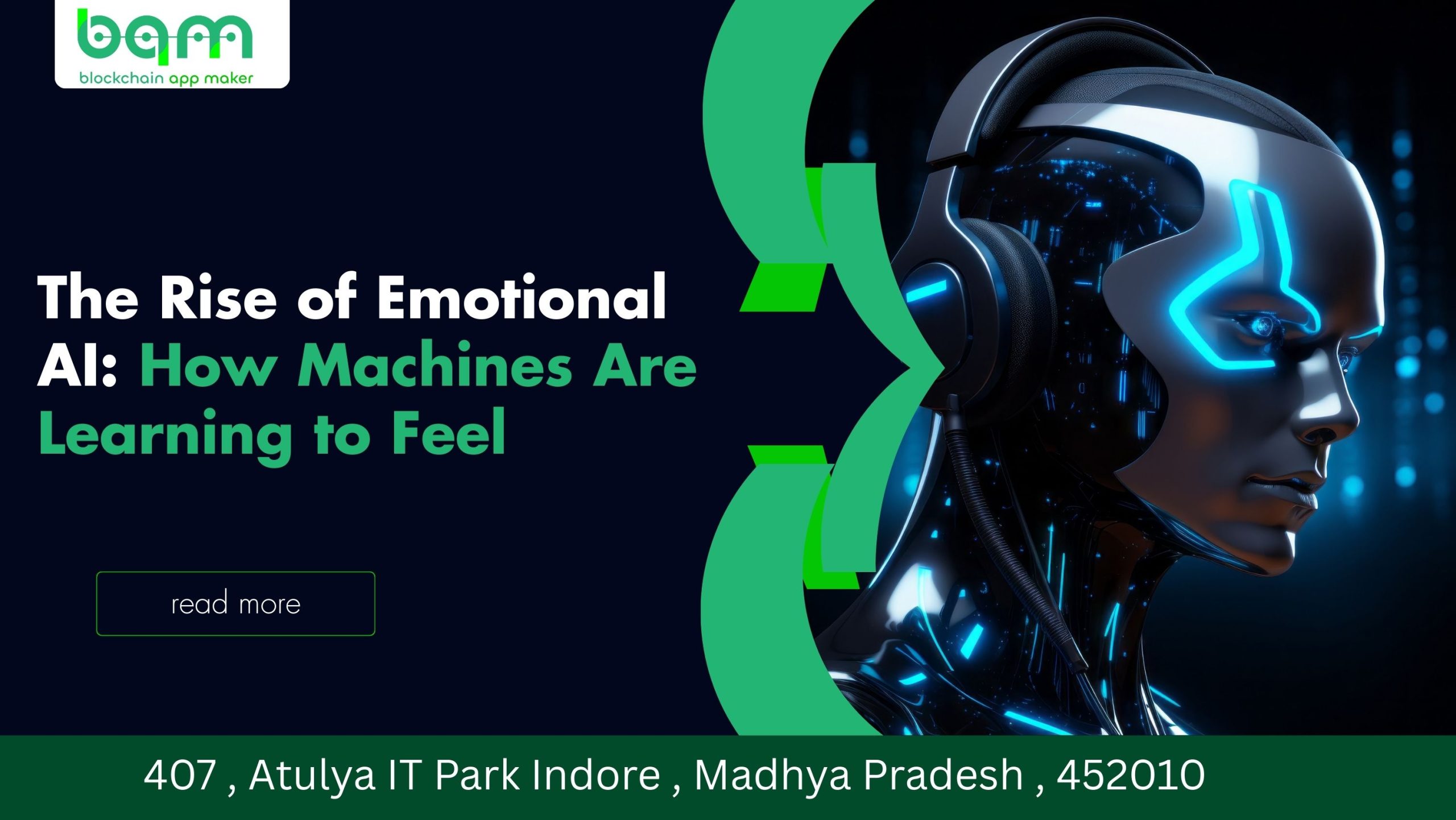World is always interested in finding out how advanced technologies will influence the way digital transformation takes place—through decentralized finance, smart contracts and AI automation. Emotional Artificial Intelligence (Emotional AI) is quickly advancing—it makes machines not only think logically, but respond to emotions as well.
Emotional AI agents are now changing the way people communicate with machines. As technical agents become more aware of emotions, we’re seeing an era of adaptable technology that will influence varied industries.
What Is Emotional AI?
Machines that can undertake emotional AI have the ability to sense, understand and reproduce human feelings. The combination of artificial intelligence, psychology, neuroscience and behavioral analytics allows for natural responses to what we do.
Though blockchain stands out because it cannot be changed and is secure, Emotional AI focuses on adding a human side to highly automated tools. Thanks to their strong connection, trust in and transparency of systems are improving, along with their ability to sense and respond to emotions.
Core Technologies Powering Emotional AI
For Emotional AI to work smoothly, it relies on using powerful up-to-date technologies.
-
Natural Language Processing
It refers to the area of computer science that looks at how computers process human speech and writing. AI studies speech or written material for what emotions and tone exist in the content. NLP supports chatbots and virtual assistants in improving how businesses interact with customers.
-
The technology of Facial Expression Recognition
By combining computer vision with deep learning models, machine vision can notice tiny facial expressions to give up-to-the-minute feedback.
-
Voice Analysis
Voice assistants and computer customer support use emotional AI to check pitch, tempo and volume to sense vocal stress or excitement.
-
Biometric Sensors
Heart rate, the size of pupils and skin conductivity can be used to detect emotional states in both wearables and health-tech devices.
By combining these emotional layers with blockchain identity tools, people can be given verified access to how they manage their own feelings.
Key Applications of Emotional AI in the Modern World
- Healthcare and Taking Care of Your Mind
With the help of natural language processing and cognitive behavioral strategies, Woebot and Wysa use AI to give emotional support through their apps. Advanced remote diagnostics made possible by emotional AI keep patients calm and cared for in sensible and meaningful ways.
- Customer Experience & Support
Bots that use Emotional AI can analyze customer emotions as soon as they communicate. When someone becomes frustrated, the system may change the response or prioritize the problem—both will help make the experience more enjoyable and memorable.
With Blockchain App Maker, we create AI support systems that match with smart contract rules for improved openness and understanding in our services.
- Technology for Education
Through emotion recognition, these platforms stay updated about students’ engagement which prompts them to provide instant advice for better learning. Learnership systems that sense emotion can respond accordingly to the student’s mood or level of irritation.
- Human Resources and Recruitment
Today, interview bots can sense whether a candidate is confident, under stress or hesitant which makes emotional AI an important part of automated talent selection.
- Automotive & Smart Device
Vehicles that understand emotion can see if a driver is getting tired or furious and react appropriately. Emotional AI is fast becoming an important aspect of smart landscapes and IoT.
Why Emotional AI Matters in the Blockchain Ecosystem
While Emotional AI brings a human touch to online conversations, blockchain adds security to the process. Welcome to a time when our feelings and actions are encrypted, stored and managed with permission on the blockchain, so individuals can manage them freely.
Here’s where Blockchain App Maker steps in:
- Emotional AI can be added to dApps to make the experiences for users more user-friendly.
- We make sure blockchain frameworks we build keep emotional data private, following GDPR and HIPAA regulations.
- We make it possible for e-learning and mental wellness apps to reward users using emotions.
Challenges in Deploying Emotional AI
Though Emotional AI has much to offer, it has serious concerns associated with it.
- Data Privacy
Emotion recognition deals with very sensitive kinds of data. If biometric or behavioral data is part of the system, user agreement and the safekeeping of information become very important. With blockchain, users can trust the system’s verification and control with no one in charge.
- Embracing Creole and African Cultural Priors
The way we show emotion differs from culture to culture, age to age and one person to another. It is important for emotional AI systems to study many types of data to avoid having biases.
- Dealing With Manipulation
A system that senses emotions can be designed to alter how people respond—in situations of selling, politics or on the internet. Set standards are necessary to direct ethical development and application.
At Blockchain App Maker, we promote blockchain and AI methods that are transparent, fair and hold everyone accountable.
Emotional AI Meets Decentralized Identity
A new area where Self-Sovereign Identity (SSI) and emotional data meet is gaining attention. Having digital identities backed by blockchain, users are able to personally control, manage and profit from their emotional data.
Imagine opening your work browser and having a machine check your mood which is then securely verified online through blockchain, so your data remains hidden. That’s the strength of convergence.
Looking Ahead: The Future of Emotional AI Agents
What follows in the development of Emotional AI will feature:
- Multimodal Emotion Recognition:Interpreting expressions, tone, posture and bio-signals at the same time.
- Personal Emotional Profiles: They learn your normal habits and reactions over a period, so they can quickly tailor suggestions to your liking.
- Intelligent smart contracts: Those that follow rules and assess customer and team spirits as well as objective situations.
Conclusion: Emotion is the New Interface
Digital empathy is greatly enhanced by moving from smart AI to sensitive AI. With businesses using emotional intelligence in their systems, users are going to expect more empathy and better personalization from their interactions.
At Blockchain App Maker, we feel that joining AI and blockchain can result in safe, ethical and understandable ecosystems. No matter if you’re starting a dApp, creating a health and wellness platform or coming up with an education solution, we can help you add emotional intelligence to your decentralized design.
Let’s build technology that not only understands data—but understands us.



